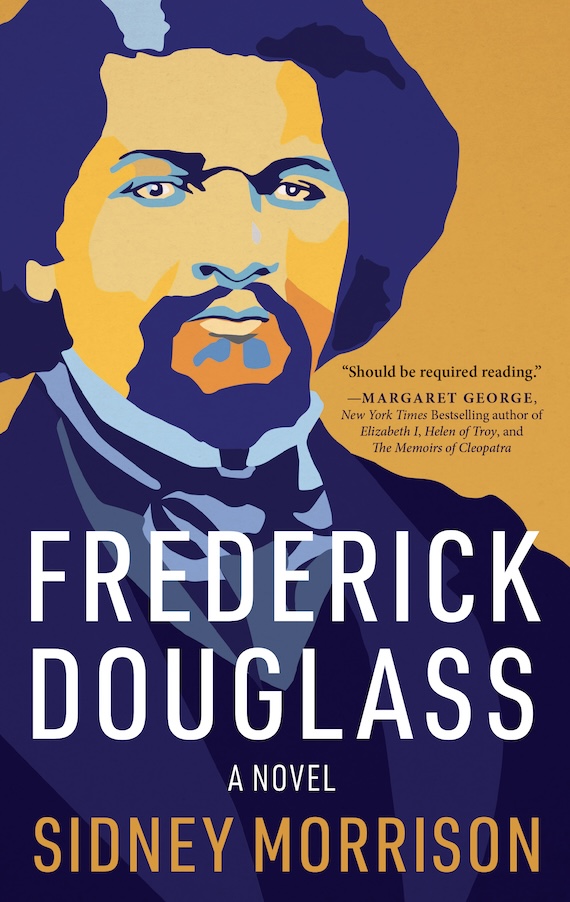Los Angeles (Special to Informed Comment; Feature) – Racism, like cancer, seems incurable as it continues to ravage our nation; its social, cultural and political life imperiled by a relentless disease affecting millions, many of whom deny its very existence. Even so, we must continue to celebrate the undaunted courage and determination of our moral physicians, those who, sustained by hope and idealism, persist in the struggle to find cures or, at the very least, mitigate the suffering of the most endangered. Theirs is a search for healing and truth, and it is that search that fundamentally inspired me to write a novel about Frederick Douglass, using a popular literary genre to introduce and familiarize readers with the life of a remarkable, complicated literary genius who consistently promoted the best in ourselves and in our nation.
Douglass dedicated his life and work to celebrating and explaining freedom, equality, and justice for all while exposing the fundamental threat to the fulfillment of the American experiment: racism and its institutional arms, slavery and discrimination. He warned in a speech, “Where justice is denied, where poverty is enforced, where ignorance prevails, and where any one class is made to feel that society is an organized conspiracy to oppress, rob and degrade them, neither persons nor property will be safe.”
Called a prophet of freedom, Frederick Douglass both challenges and inspires us to think and feel more deeply about the issues that absorbed him. He remains relevant for the twenty-first century, and the debates of his time are the debates of our political season.
Douglass asked: What is the purpose of America? How do we fulfill the hopes and aspirations of its citizens? What are the best tactics to make the claims of the U.S. Constitution real for all Americans?
This passionate and stubborn man offered unequivocal answers. He asserted as the motto for his first newspaper, The North Star, “Right is no sex. Truth is of no color. God is the Father of all, and we are all brethren.”
Millions still dispute these assertions, agitated and energized by the ascendancy of Barack Obama and Kamala Harris whose careers are mocked and derided by politicians and pundits using slurs and tropes all too familiar to Douglass.
If you think viciousness and cruelty are unique to our time, you should explore the political cartoons and commentary of the ninteenth century. Racial fear predominates, the fear of social equality and the presumed inevitable result: interracial sex denounced as “amalgamation,” that telling confluence of disgust and envy.
The language of racism and caste has a universal vocabulary; it targets those who are different: them, the other. And according to our past and present fearmongers, they will come after you; take what is yours; rape your wives; kill your children; eat your pets.
Douglass dedicated his life to exposing these perpetrators, becoming their worst nightmare: the supremely gifted black gentleman.
In 1869, when Southern states were systematically removing rights from black people granted by new amendments to the U.S. Constitution and using the KKK as an unofficial arm of local and state governments to terrorize people, Douglass offered an alternative, a grander vision of America and humanity. Douglass’ rhetoric is founded on the celebration of difference, a rejection of racial supremacy. He said, “The mission of America seems plain and unmistakable. Our geographical position, our relation to the outside world, our fundamental principles of government, world-embracing in their scope and character, our vast resources, requiring all manner of labor to develop them, all conspire to one grand end, and that is, to make us the perfect national illustration of unity and dignity of the human family that the world has ever seen.”
Immigration is good.
Difference will save us.
Unity is inevitable.
Douglass was not naïve; he knew the work of his career would never be easy. He famously observed, “If there is no struggle, there is no progress. Those who profess to favor freedom and yet deprecate agitation, are men who want crops without plowing up the ground; they want rain without thunder and lightning. They want the ocean without the awful roar of its many waters. This struggle may be a moral one, or it may be a physical one, and it may be both moral and physical, but it must be a struggle. Power concedes nothing without a demand. It never did and never will.”
This comment might suggest a grim, joyless tenacity that belies the essential optimism of the man, who said while slavery survived in 1855, “I long to have a future—a future with hope in it.”
And after the abolition of slavery, Douglass summarized one of the most valuable lessons learned by the struggle. It was “faith in man, faith in the rectitude of humanity, and faith in the all-conquering power of truth.”
This is my faith, my highest hope, and my novel is dedicated to the great possibilities within us all and our beloved land.



 © 2025 All Rights Reserved
© 2025 All Rights Reserved